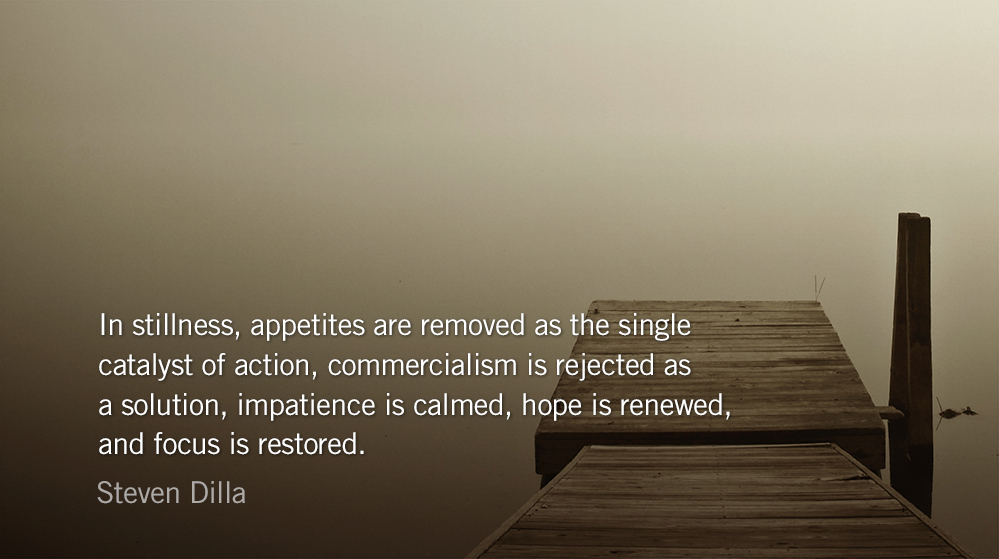When faith is completely replaced by creed, worship by discipline, love by habit; when the crisis of today is ignored because of the splendor of the past… it’s message becomes meaningless.
― Abraham Joshua Heschel
Scripture: Psalm 46.10
Be still, and know that I am God.
Reflection: Experiencing God in the Moment
The Park Forum
Most people spend a significant amount of the day responding. Phones rattle for attention, coworkers await responses, family members want to check in—even our own appetites compete with meaningful thought for mental real estate. And so, when we come across a Scripture asking us to “be still” we find not only our actions, but our posture toward the world confronted.
Materialism has discipled us to find meaning in purchases and experiences—reducing every moment to a transaction to which we can apply a cost/benefit analysis. The more successful we are in life, the more this analysis is instinctual and preemptive. We rule out the idea of stillness before the act is even possible or—worse yet—we look at stillness as another exchange of value, demanding we receive more out of our time than we would have had we invested it in other ways.
Stillness, when speaking of the soul, is the opposite of disquiet. In stillness, appetites are removed as the single catalyst of action, commercialism is rejected as a solution, impatience is calmed, hope is renewed, and focus is restored.
Many of the ways spiritual people avoid stillness are themselves spiritual; the tasks of religion replace the heart of faith. In other words, we do not meet God because we attempt to manage all of the inputs (scripture, disciplines, etc) with the outputs (increased intellectual understanding or moral activity).
To be still and know God is to dive into the texture and richness of life in such a way that our spiritual life becomes one with every other part of life. It is our ability to experience God not only in the moments we structure, but in the world that he has structured. In God in Search of Man Rabbi Abraham Joshua Heschel remarks:
To the Jewish mind, the understanding of God is not achieved by referring in a Greek way to timeless qualities of a Supreme Being, to ideas of goodness or perfection, but rather by sensing the living acts of His concern, to his dynamic attentiveness to man.
We speak not only of His goodness in general, but of His compassion for the individual man in a particular situation. God’s goodness is not a cosmic force, but a specific act of compassion. We do not know it as it is, but as it happens.
Prayer: The Refrain for the Morning Lessons
For one day in your courts is better than a thousand in my own room, and to stand at the threshold of the house of my God than to dwell in the tents of the wicked. —Psalm 84.9
– From The Divine Hours: Prayers for Springtime by Phyllis Tickle.
Full prayer available online and in print.
Today’s Readings
Numbers 10 (Listen – 4:11)
Psalm 46-47 (Listen – 2:05)






